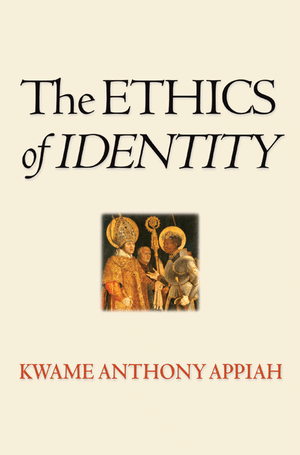Linda Martín-Alcoff: Visible Identities: Race, Gender and the Self [Review]Posted in Articles, Book/Video Reviews, Latino Studies, Philosophy on 2011-05-11 03:33Z by Steven |
Linda Martín-Alcoff: Visible Identities: Race, Gender and the Self [Review]
Notre Dame Philosophical Reviews
2006-06-22
Linda Martín-Alcoff, Visible Identities: Race, Gender and the Self, Oxford University Press, 2006, 326pp., ISBN 0195137353.
Ronald Sundstrom, Associate Professor of African American Studies
University of San Francisco
Linda Martín Alcoff’s book, Visible Identities, offers a conception of social identities that collects together her work on the metaphysics, epistemology, and politics of ethnicity, race, and gender. The idea of visibility has a unifying role in Alcoff’s metaphysical and epistemological account of those social identities. Likewise, visible is what social identities should be in Alcoff’s vision of political life. Visible identities, according to Alcoff, are a resource in a pluralistic democracy, and are not to be eschewed for a simple American identity beyond hyphens, race, ethnicity, and gender difference. That political point is the fundamental point of this book, and it is delivered through Alcoff’s metaphysical analysis of race, ethnicity, and gender.
Alcoff’s attempt to make a political argument through metaphysical analysis immediately calls to mind the distinction between those two areas of inquiry and their presumed separateness. Richard Rorty captured this distinction by framing it in terms of the two questions “what are we?” and “who are we?” The first question is concerned with metaphysics, while the latter is political. The “who are we?” question seeks to discover some unifying thing or idea that, in Rorty’s words, “makes us less like a mob and more like an army.” Rorty’s point, in part, was that those questions were distinct and that an answer to the first did not determine the answer to the second. Answers to the “who” question are always hopeful, for they point to not what we are but who we hope to be. Thus, the political question is a constituting one that points to an ongoing formative project, and it requires the political community to work through time to achieve their collective ideal identity. Who the US should hope to be, according to Rorty, is a nation that “achieves” its constitutional ideals by learning the necessary lessons from the Civil Rights and Feminist movements, yet not losing focus on the political process of building a national moral community that takes primary pride in its collective national identity.
Alcoff would disagree with the completeness of the distinction that Rorty drew. She argues in Visible Identities that “what” we are, as well as “where” we are—in terms of our social location—has political implications, although not the deterministic implications that racial nationalists would desire. Furthermore, she clearly disagrees with the condition regarding identity that is required by Rorty’s great left liberal hope: that strongly felt identities be put aside in favor of a unifying national identity…
…Other features of Alcoff’s account of social identities are familiar ideas in debates about the metaphysics of social identities. She defends a dialogical account of the self that incorporates her use of hermeneutics and phenomenology, and argues that individuals participate in multiple and hybrid identities. Of course, the familiarity of the latter idea is due in no small part to the influence that her essay “Mestizo Identity” has had on race theory. That essay is renamed, “On Being Mixed,” and is the twelfth chapter of Visible Identities. The upshot of these features of her account is to further weaken the three objections she analyzes, especially the assumption that such identities lead to narrow, isolated, and separated self-conceptions that undermine national political life…
…Alcoff’s account of identity exposes important features of “visible identities” that make them radically particular experiences. While she places the social identities she analyzes within the context of group interaction, her emphasis on hybridity and multiplicity allows for enough divergence so that three problems with identity are avoided. This feature of her account is developed in her discussion of mixed race and mestizo identity. She also, however, reminds us that these complex and radically particular identities have historically served as points of political organization, and argues that they should engender larger political participation. Alcoff develops this line of thought in the first chapter, as well as in her chapters on Latino and mixed race identity. In that analysis she avoids, however, the dangers of the institutionalization of those identities, which precisely lead to critiques of identity politics. Groups become centers of power that seek social reproduction and offer measures to encourage loyalty, compel membership, and exclude those who exercise their individual autonomy by not conforming to the group’s will. They seek to suppress the very multiplicity and hybridity which Alcoff depends upon to save identity from the criticisms of liberals. For the sake of their own visibility, groups engender the invisibility of other embodied identities…
Read the entire review here.


